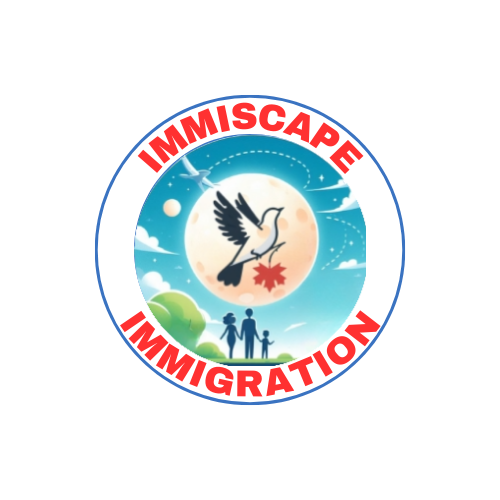Published: July 2025
Canada continues to refine its immigration pathways to better align with labor market needs.
On June 25, 2025, Immigration, Refugees and Citizenship Canada (IRCC) announced a major update to the Post-Graduation Work Permit (PGWP) eligibility criteria. This update includes the addition of 119 new programs and the removal of 178 programs, bringing the total number of PGWP-eligible fields of study to 920.
This blog post breaks down what these changes mean for international students, educational institutions, and future immigration hopefuls. Whether you’re planning to study in Canada or advising students, this guide will help you navigate the new PGWP landscape.
🔍 What Is the Post-Graduation Work Permit (PGWP)?
The PGWP is an open work permit that allows international students who have completed an eligible program at a Designated Learning Institution (DLI) to gain valuable Canadian work experience. This experience can be crucial for those aiming to apply for permanent residence through programs like Express Entry or Provincial Nominee Programs (PNPs).
🆕 What Changed in 2025?
✅ 119 New Programs Added
IRCC has added 119 new fields of study to the PGWP-eligible list. These additions reflect Canada’s 2025 Express Entry occupational priorities, which emphasize sectors facing long-term labor shortages, including:
- Healthcare
- Education
- Social Services
- Skilled Trades
This update ensures that international graduates are better aligned with Canada’s economic and demographic needs.
❌ 178 Programs Removed
At the same time, 178 programs were removed from the eligibility list. These were primarily non-degree programs that are no longer associated with occupations in long-term demand.
📊 Total Eligible Fields of Study: 920
After these changes, the total number of PGWP-eligible fields of study stands at 920. You can view the full list of eligible Classification of Instructional Programs (CIP) codes on the IRCC website
📅 Key Dates to Remember
🗓️ November 1, 2024
If you applied for a study permit on or after November 1, 2024, your program must be on the updated list of eligible fields of study to qualify for a PGWP—especially if you’re enrolled in a non-degree program.
🗓️ June 25 – July 4, 2025: Grace Period
Students who applied for a study permit between June 25 and July 4, 2025, and whose programs were removed from the list, are still eligible for a PGWP. This grace period offers a buffer for those caught in the transition.
🎓 Who Is Affected?
✅ University Graduates
Students completing bachelor’s, master’s, or doctoral degrees at eligible DLIs are largely unaffected by these changes. These programs continue to be PGWP-eligible regardless of field of study.
⚠️ College Graduates in Non-Degree Programs
The biggest impact is on non-degree college programs (e.g., diplomas and certificates). These programs must now be in a field of study that aligns with Canada’s labor market priorities to qualify for a PGWP.
🏫 DLI Status: Not Enough on Its Own
A common misconception is that graduating from a Designated Learning Institution (DLI) automatically qualifies a student for a PGWP. This is not true.
PGWP Eligibility Requirements:
- Program Length: At least 8 months (or 900 hours in Quebec).
- Program Type: Must lead to a degree, diploma, or certificate.
- Full-Time Enrollment: Required throughout the program, except for the final semester.
- Study Permit: Must have held a valid study permit at some point during the 180 days before applying.
- Application Deadline: Must apply for the PGWP within 180 days of completing the program.
Even if your institution is a DLI, your specific program must be on the PGWP-eligible list.
🧭 How to Check If Your Program Is Eligible
To determine if your program qualifies for a PGWP:
- Find your CIP code from your institution or program documentation.
- Visit the IRCC’s PGWP eligibility page
- Search for your CIP code in the list of eligible fields of study.
If your program is not listed and you applied for a study permit after November 1, 2024, you may not be eligible for a PGWP.
🧑⚕️ Why These Changes Matter
Canada’s immigration system is increasingly targeted and data-driven. By aligning PGWP eligibility with Express Entry priorities, IRCC is ensuring that international graduates are equipped to fill critical labor shortages.
This benefits:
- Students, by improving their chances of permanent residency.
- Employers, by providing access to skilled talent.
- Canada, by addressing demographic and economic challenges.
💡 Tips for Future International Students
If you’re planning to study in Canada and hope to work after graduation:
- Choose your program wisely: Make sure it’s on the PGWP-eligible list.
- Apply early: Avoid last-minute applications that could miss eligibility windows.
- Consult an RCIC: Immigration consultants can help you navigate program selection and application timelines.
- Stay informed: Policies change frequently—subscribe to IRCC updates or follow trusted immigration blogs.
📞 Need Help Navigating PGWP Eligibility?
As a Regulated Canadian Immigration Consultant (RCIC), I specialize in helping international students make informed decisions about their education and immigration pathways. If you’re unsure whether your program qualifies for a PGWP or need help planning your study permit application, contact me today for a personalized consultation.
